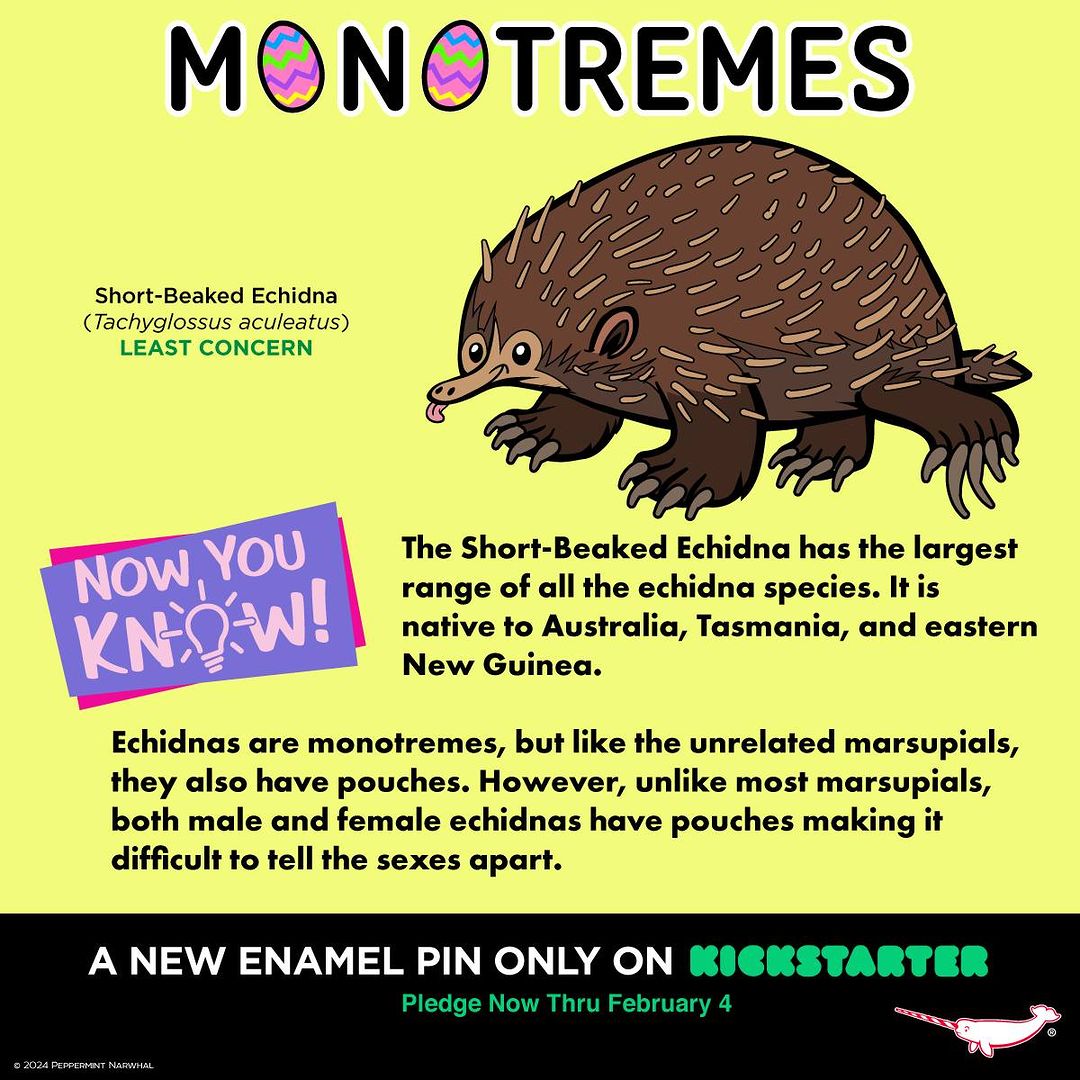– Insight into the unique classification of monotremes, with a focus on the Short-Beaked Echidna (Tachyglossus aculeatus)
– A deep dive into the habitat range, physical characteristics, and behavior of the Short-Beaked Echidna
– Conservation status and the efforts to protect this distinctive species
– The role of the Short-Beaked Echidna in indigenous cultures and its impact on ecosystem health
– How public engagement, through initiatives like collectible pins, aids in wildlife conservation
Monotremes represent an extraordinary group of mammals that lay eggs, a characteristic shared by no other mammals. This article illuminates the fascinating aspects of one monotreme, the Short-Beaked Echidna (Tachyglossus aculeatus), detailing its taxonomy, habitat, behavior, conservation status, and significance ecologically and culturally. Additionally, we explore how fostering public interest through collectibles contributes to conservation efforts.
Monotremes defy the common mammalian blueprint of giving birth to live young, laying eggs instead. The Short-Beaked Echidna, alongside the Platypus, forms this exclusive mammalian category. Concentrating on the former, the Short-Beaked Echidna thrives in various environments across Australia, Tasmania, and eastern New Guinea. Its ability to adapt to different habitats, from the cold mountainous regions to the heat of the desert, underpins its wide distribution.
Physically, the Short-Beaked Echidna sports spines covering its body, which are modified hairs made of keratin, protecting predators. Its snout, used for breathing and housing its electroreceptors to detect prey underground, exhibits exceptional sensory capabilities. Unlike marsupials that predominantly have pouches for nurturing young, Echidnas’ pouches primarily shield the eggs post-laying for both genders, making gender differentiation challenging.
The conservation status of the Short-Beaked Echidna maintains a stable outlook, classified as least concern by the IUCN. This stability reflects both a widespread distribution and versatile habitat occupation. However, threats persist, including habitat destruction, road fatalities, and predation by introduced species such as foxes and feral cats. Conservation efforts are crucial to mitigate these threats, involving habitat restoration, research, and public education campaigns to raise awareness.
Indigenous cultures have long revered the Short-Beaked Echidna, incorporating it into their folklore and utilizing its spines for tools and ornaments. Beyond cultural value, echidnas play a significant role in maintaining ecosystem health, acting as natural pest controllers through their consumption of ants and termites. Their foraging behavior aids soil aeration, promoting nutrient cycling and soil health, demonstrating their integral role in their native ecosystems.
Public engagement represents a vital tool in wildlife conservation, transforming awareness into action. The initiative to produce collectible enamel pins featuring monotremes, such as the Short-Beaked Echidna, aims to spark interest and support for these remarkable creatures. By spotlighting the Short-Beaked Echidna and its monotreme counterparts, this campaign celebrates biological diversity and mobilizes funds and attention towards their preservation.
The Short-Beaked Echidna’s distinct biology, wide-ranging habitat, contribution to cultural heritage, and role in ecosystem dynamics underscore its importance within scientific and conservation communities. Efforts to secure its survival, including protective legislation and habitat management, are integral to maintaining biodiversity. Campaigns that engage the public, like the collectible pins, play a crucial role in fostering a deeper connection between people and wildlife, driving collective efforts to safeguard these remarkable creatures for future generations.
*****
Source Description
MONOTREMES – Short-Beaked Echidna (Tachyglossus aculeatus)
Now You Know! – The Short-Beaked Echidna has the largest range of all the echidna species. It is native to Australia, Tasmania, and eastern New Guinea.
Echidnas are monotremes, but like the unrelated marsupials, they also have pouches. However, unlike most marsupials, male and female echidnas have pouches, making it difficult to tell the sexes apart.
The Short-Beaked Echidna is now a collectible pin!
–
NEW collectible enamel pin series featuring the world’s only egg-laying mammals, the monotremes, including the Platypus and the echidnas.
Pledge Now! – https://rb.gy/0lw7he
Search “Monotremes” or “Peppermint Narwhal” on Kickstarter.
The campaign runs now through Feb. 4, 2024.
Shop www.peppermintnarwhal.com

